Bikash Mohapatra, in an attempt to diagnose what ails Indian cricket, identifies what we are well aware of, but hate to admit!
The just-concluded Test series Down Under witnessed another drubbing for Team India.
Predictably, there is a backlash from all quarters. However, it will take just one good result or two before the ignominy is swept under the carpet. When it comes to Indian cricket, nothing much has changed over the years.
While fans, who have ensured the sport a religion status, can be blamed for being overtly demanding on most occasions, the players are guilty of apathy.
- Have an agenda to make Indian cricket great again? Tell us
The administrators, on the other hand, are more than happy with status quo, a situation where the many supporters of the game are taken for granted.
Finally, it is the fans who are aware what is wrong with cricket but refrain from admitting it, simply because they love the game too much.
The biggest malaise that afflicts Indian cricket is the fact that everyone is aware of the problems, yet hates to admit the same.
It's self first, then the team
When it comes to Team India, it is always about 'star' players.
Sachin Tendulkar, Virender Sehwag, MS Dhoni, Rahul Dravid, VVS Laxman, Zaheer Khan... the list is endless.
Each time one of them hits a boundary or takes a wicket, the crowd gets into a delirium. Individual efforts always get predominance in what is essentially a team sport.
Case in point: India's recent Test against the West Indies at the Wankhede stadium. For two days, as the visitors batted, the stadium wore a deserted look. The next two saw fans swelling the Mumbai venue in anticipation of Sachin Tendulkar's 100th hundred.
Being a fan of a particular player is fine, but in our case we idolize players a bit too much. Somewhere in between all this the team gets lost. While we do see is a couple of individual efforts, however sporadic they may be, seldom does the team come up with what can be termed a 'team effort'.
In the case of most other teams, it is the other way round. The fact that our fans are star-struck has made the players more important than the team. And that is detrimental to any team's fortunes.
Reputation matters, not form
This is an off-shoot of the first attribute.
It is like a government job, so to speak. Once you establish yourself in it, you can rest assured you won't lose it.
- Have an agenda to make Indian cricket great again? Tell us
Indian cricket history is replete with examples of players who have been a part of the team for years despite underperforming. It is their reputation helps them cement their place in the side, present failures notwithstanding.
Somewhere down the line this complacency costs the team a good performance. If we take the ongoing tour of Australia as an example, players like VVS Laxman, Gautam Gambhir were there only on reputation, not form.
How it affected the team Down Under need not be said.
The aggression on display is vague, misplaced
Virat Kohli completes his maiden Test century, takes his helmet out, raises his hands and utters an expletive.
A novel way of celebrating a milestone, for sure. It is definitely the batsman's favourite word (that b-word) -- he has been seen uttering the same more often than not.
The same gentleman had, in a match earlier, shown his middle finger in response to jeers from the crowd (frustrated with India's appalling performance) and was handed a heavy fine.
- Have an agenda to make Indian cricket great again? Tell us
This is the new Team India that believes in giving it back. If players from Australia, or any other team, can sledge and irritate other teams, our players can do better.
Remember Gautam Gambhir elbowing Shane Watson and getting into an argument with Simon Katich a couple of years back?
A few major teams have been known for their sledging. They have used it to their advantage more often than not.
For them, it is inherent; for us, imbibed!
Team India's acquired trait is atypical of a nation that takes no time in learning the negative attribute of others, while conveniently ignoring the positive ones.
It might have worked for our team on a few occasions. But, on most, it has been used to camouflage a shoddy effort on the field.
To cite an example, Team India's last tour Down Under (2007-08) was infamous for the 'Monkeygate' scandal. The incident took attention off what was otherwise a poor show by the visiting team.
The board, the players and the fans were unanimous in their support for Harbhajan Singh. The off-spinner expectedly escaped punishment, only to punish countryman S Sreesanth a few weeks later.
Blaming the captain is an easy way out
A few months back he was the best thing to have happened to Indian cricket.
When he won India its first World Cup in 28 years, he was a hero. We called him 'Captain Cool', 'Man with the Midas Touch' and what not.
MS Dhoni achieved a lot as a captain in a short span. Starting with a triumph in the inaugural T20 World Cup in 2007, he led Team India to the Commonwealth Bank Series title, the Asia Cup, the No.1 spot in Tests and, finally, the elusive second world title.
- Have an agenda to make Indian cricket great again? Tell us
With each passing triumph, the appreciation showered on him was in excess. Now, as he faces his leanest period, the criticism coming his way is as much, if not more!
Following seven straight Test defeats overseas, many are after his head.
It is an oft-repeated statement that the captain is as good as his team. To Dhoni's detriment, his team failed him completely in both the 'away' tours.
Should the captain be the only one blamed for the debacles?
The coach is but a chained puppet
Following Team India's debacle Down Under, the calls are mounting for Duncan Fletcher's head. Yes, he failed to produce the desired result, but wasn't it his players who failed him?
It is easy to put the blame on the coach, but what one needs to consider is: in a team like ours, full of star players, how much say does the coach actually have? How many players actually listen to what point he is making?
- Have an agenda to make Indian cricket great again? Tell us
We aren't a nation which takes kindly to criticism. That attribute manifests itself to the dressing room as well. The coach of the Indian team is more often than not a 'yes man', devoid of any significant power.
In the history of our cricket, there is only one coach who dared to be vocal, question our existing structure and wring in some changes.
Yes, Greg Chappell! The man we love to hate. True, he couldn't achieve the desired results, but also true is the fact that his emphasis on youth has benefited us in the long run. At least he tried.
John Wright was meek, Gary Kirsten indifferent (read practical) and extremely fortunate. The Indian coaches, the less said the better!
The incumbent, Fletcher, seems clueless.
What's the point in having a coach if he can't have a say.
Prejudice rules our selection policy
It is well-known that the selectors give preference to players from their respective states/zones. Form has got nothing to do with selection.
In the ongoing regime we have seen players like Abhinav Mukund, Murali Vijay, R Ashwin and S Badrinath make their way into the national team.
- Have an agenda to make Indian cricket great again? Tell us
Yes, all are from Tamil Nadu.
Before that it was Mumbai which ruled the roost. And, needless to say, most of these selections flattered to deceive.
On the other hand, players from smaller associations, no matter how talented or consistent they are, always have trouble making the cut. Even if they make it, they are seldom certain of their places, performances notwithstanding.
If the ball moves, so does the team
Forget the humiliation in England. Leave aside the debacle Down Under.
Take examples from within India, our own turf. Considered unbeatable at home, the only two occasions when we have had sporting wickets -- where the ball has done a bit -- in recent times, Team India got thrashed -- on both occasions against South Africa.
First it was at Motera in 2008. And, then, Nagpur, in 2010. Dale Steyn wrecked havoc in both the matches.
We might have conveniently made turning tracks for next Test and squared the series, but the inability to play the moving ball persists.
- Have an agenda to make Indian cricket great again? Tell us
The tour Down Under, and to England prior to that, yet again exposed this frailty. Our batsmen, who score big runs on the flat tracks at home, were clueless against the moving ball.
It is a problem that has perennially plagued Indian cricket, and passed on from one generation to another.
More worrying is the fact that there is no solution in sight.
Bowling remains an issue...
In the history of Indian cricket we have never had a fast bowler in the real sense of the term. Our strength is spin, and, to an extent, medium pace.
True, there were instances when some bowlers generated good pace, but those are few and far between. The said bowlers slowed down considerably after a first brush with injury.
- Have an agenda to make Indian cricket great again? Tell us
Now, suddenly, we have Ishant Sharma, Umesh Yadav and Varun Aaron, bowlers who promise to bowl consistently over 140kph. And the whole nation expects them to make an instant impact.
Result: Ishant gets injured and loses the plot; Yadav is hit all over the park and Aaron can't survive even one series (apologies, one Test!).
The selectors could have easily taken a leaf out of Zaheer's case, a quality bowler whose career has been marred by injuries.
A once quick bowler, Zaheer, to his credit, uses guile (not pace) to outthink and outsmart a batsman. Unfortunately for Team India, he is one of a kind.
...so is the fitness of our players
A few years ago a television channel carried visuals of the Indian team practicing. It was jogging session, with then coach Gary Kirsten leading the way.
While the South African and his team (all 40-plus) had no problems whatsoever, our players were seen panting. Some gave up mid-way, others looked at the moving camera, and soon sought refuge behind the hoardings on the ground.
- Have an agenda to make Indian cricket great again? Tell us
That's was just a pointer to the fitness a problem that perennially afflicts our team.
Consider this: An opposition batsman hits a ball towards an Indian fielder and conveniently takes two runs. He is confident he will not be run-out.
How many times have we seen this happen in a match featuring India?
Suffice to say, an excellent Australian effort on the field, and the lack of it by Team India, played a major part in the just-concluded Test series.
But, then again, this has been a perennial problem.
IPL has done more harm than good
People can make thousands of arguments in favour of the Indian Premier League. That it has revolutionized the manner in which cricket is played in the country. That it helps unearth fresh talent. That it has brought people back to the ground.
The prime time telecasts of the matches ensure what can be referred to as 'appointment television'.
- Have an agenda to make Indian cricket great again? Tell us
In the process the advocates of the IPL have ignored its many vices, even when they are aware of the reality.
Placid conditions and apathy had already ensured the death of our domestic competitions – the Ranji Trophy, Duleep Trophy et al -- long back. IPL hit the final nail in that coffin.
A young cricketer is now more keen on earning mega bucks from the T20 competition rather than grinding it out in the longer (and poorer) domestic versions.
Criticising our domestic competitions, terming their formats 'archaic' and blaming our cricketers for their indifference is an easy way out.
If domestic competitions don't serve their purpose, the IPL is no good. Most of the talent unearthed in the premier T20 tournament have been found wanting when exposed to the rigours of Test cricket.
The Indian fan is easily satisfied
It's been the bane of Indian cricket. Fans are satisfied with immediate dividends, not a long term returns. They are happy with a match win at the cost of a series; content if their favourite batsman hits a few boundaries (and sixes) even if he fails to last long.
On a broader note, they will forgive the team for getting thrashed in England, if India can win a series at home against the West Indies.
- Have an agenda to make Indian cricket great again? Tell us
For four World Cups in succession, from 1992-2003, our fans were happy that India beat archrivals Pakistan, conveniently forgetting we put up a shoddy show otherwise.
In other words, for an Indian fan, it is all about instant gratification. All he wants is entertainment, even if he has to pay a heavy price for it.
There might be some intolerance on display following a loss. But the issue is conveniently forgotten after a minor success, without going to the root cause. It is this inherent generosity of the fan that, in many ways, is responsible for players being the way they are.

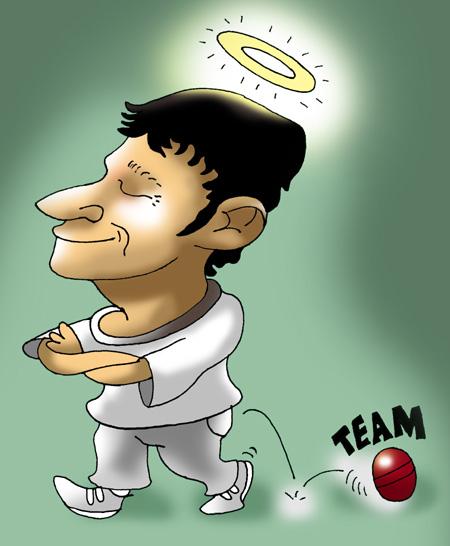


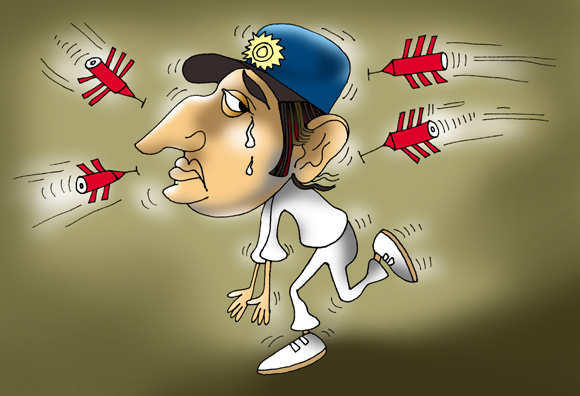
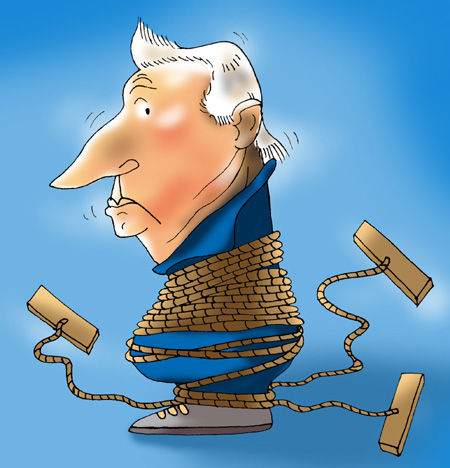

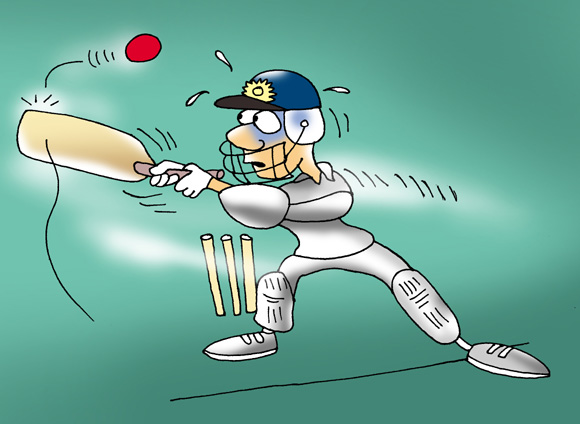
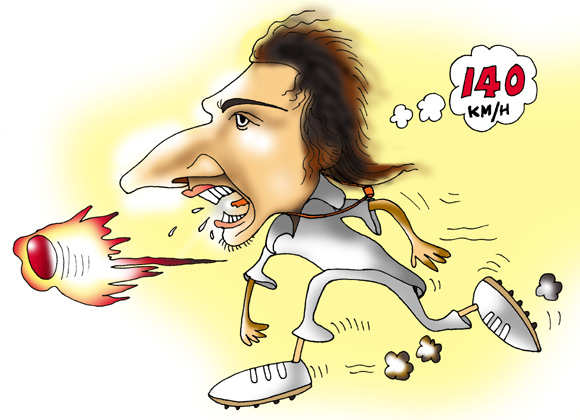
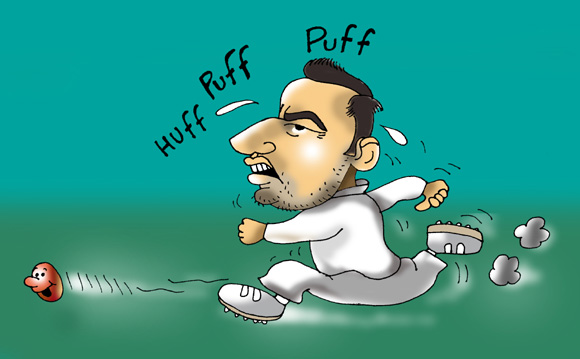
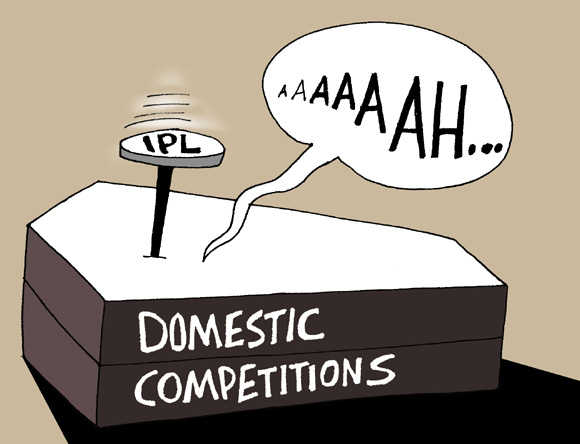

Comment
article